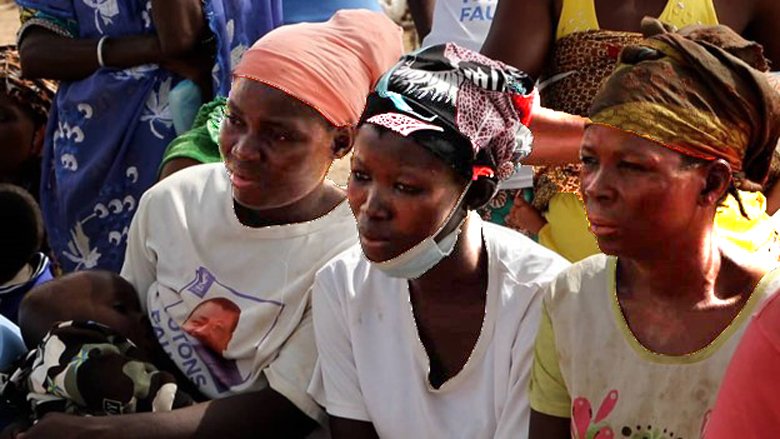Challenge
Like many other Sub-Saharan African countries, Togo faced a youth employment crisis. Although the unemployment rate was low, under-employment presented a serious problem for thousands of people. In 2017, nine out of 10 workers were active in informal and low-productivity employment (including 90.8 percent of the active population in rural areas and 87.2 percent in urban areas). This situation was even more marked for women, whose informal employment rate was estimated at 96.2 percent as compared to 78.8 percent for men. Women also faced particular challenges in accessing employment programs, as well as the production factors necessary for profitable (formal) entrepreneurship (including training, land, and finance) — especially in rural areas. The government of Togo initiated several programs to respond to this situation. However, most of these programs were tailored to urban and educated youth. Thus, this left rural, uneducated youth with virtually no programs to address their specific needs and constraints.
Approach
The EJV project filled a gap by proposing several interventions specifically targeting rural youth. The project provided access to income-generating opportunities for poor and vulnerable youth in Togo by making short-term employment opportunities available to youth. This was achieved through labor-intensive community service sub-projects, such as feeder road rehabilitation, work in community farms, community reforestation, and so on.
The project encouraged women to participate in project activities. As such, it set a 50 percent quota for female beneficiaries. In this regard, it ensured that community service sub-projects were attractive to women through an eligibility list that was approved by women during community identification of sub-projects. Each beneficiary was provided 20 person-days of employment over a four-month period.
Additionally, the project trained eligible youth in micro entrepreneurship and provided matching grants to help them create their own microenterprises. Coaching and training over a six-month period included technical advice from trade experts, as well as basic literacy training. Following the training, the beneficiaries indicated that 94 percent of their microenterprises had survived the first six months, and had continued to generate income.
Results
- The EJV project contributed to improving the business environment and broadening employment opportunities in Togo. The short-term employment opportunities provided resources for project beneficiary households to meet their immediate consumption needs and access other basic services. Many beneficiaries reported that through the project, they were able to go beyond providing food for their families. They were also able to pay school fees and send their children to the local health center when needed.
- Participating youth improved their entrepreneurship skills, strengthened their livelihoods, and improved their employment status. While many program participants were self-employed, some even created employment for others in their villages through their businesses.
- After spending the first year (November 2017 through November 2018) on staffing and community outreach processes, the project was actually implemented from December 2018 to December 2021. It achieved the following results: Over 14,400 vulnerable youth benefited from short-term employment opportunities, 8,600 of whom were women. Beneficiaries have collectively attained 1,120,219 days of employment.
- Over 14,000 young people received micro-entrepreneurship training and were able to prepare basic business plans. Furthermore, 11,495 youth initiated or expanded a microenterprise after benefitting from start-up grants offered by the project. Indeed, 94 percent of those youth were self-employed after receiving the start-up grant.
- In a September 2021 survey, 97 percent of project beneficiaries indicated that project investments had helped them, responding to their specific needs. Additionally, over 14,000 of the beneficiaries opened a bank account with local microfinance institutions. Finally, around 200 community wood plantations, fish and fruit farms, and water dams to support gardening or cattle were created.
World Bank Group Contribution
The International Development Association (IDA) financing amounted to $15 million, of which over $8 million was dedicated to providing employment through labor-intensive public works and micro-entrepreneurship training. In addition, $2.5 million of the project resources were dedicated to income-generating activities through the provision of grants, and $1 million was dedicated to grassroots management training for over 200 village development committees.
Partners
The National Agency for Grassroots Development Support (Agence Nationale d’appui au Développement à la Base), the implementing agency of the EJV project, partnered with the German Technical Cooperation (GIZ), which is supporting the government of Togo’s national strategy to equip young people with entrepreneurship skills. Thus, the GIZ invested significant resources in technical assistance to the implementing agency and the training of trainers.
Looking Ahead
The EJV project provided the Government of Togo with an opportunity to test an approach of combining short-term employment with micro-entrepreneurship training. This approach succeeded in supporting job creation for rural youth. In some villages, new community assets are providing additional opportunities for youth to work in fish farming and gardening. Some other assets, such as dams, store water for cattle and domestic use during the dry season. The GIZ is planning to fund the next installment of the project in additional communities in the northern regions. The Government of Togo intends to translate this experience into a national employment program, specifically targeting rural areas.
Beneficiary Story/Quote
Madame Boukay Omorou is one of 70 EJV beneficiaries in the village of Sigbenga, located in the Savanes region of northern Togo. During her 80-day participation in community service work and entrepreneurship training, she was able to save up to 40,000 West African francs (Communauté Financière Africaine, CFA). She also received a matching grant of 60,000 CFA from the EJV project to start a business buying and selling cooking oil. Revenues from this activity help her to provide for her family. “Before the program, my daily prayer was … not to see a day when I cannot feed my children. Since I have been in the program, I am no longer afraid for the future,” said Boukay.
